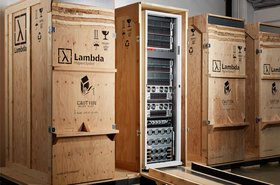Intel has secured a $3.5 billion contract with the Pentagon to produce advanced semiconductors for military and intelligence applications.
According to a report from Bloomberg, the money has been awarded to Intel under Secure Enclave, a program that the US government established to oversee the production of cutting-edge chips for US defense operations.
While details about the project are largely secret, production of the chips will reportedly span multiple fabs and states, including a manufacturing facility in Arizona, where Intel already has an established operating base.
Despite the government’s apparent keenness to award the funding to a US-based company – of which Intel is the only one that currently has the ability to produce the most advanced process nodes – Bloomberg reported that questions had been raised about the wisdom of relying solely on one company to deliver the program's desired outcomes.
In June 2024, reports surfaced that issues around funding the project had arisen. Originally, the total $3.5bn contract was meant to be split between the Department of Commerce and the Department of Defense however, after the Defense Department backtracked on its $2.5bn funding pledge for the project, the Department of Commerce was left to foot the entire bill.
At the time, the Department of Commerce had hoped it would be able to plug the shortfall by reallocating funds raised through the sale of licensed spectrum under the terms of the Spectrum and National Security Act, which would allow money made through the sale to be used to fund government tech programs. That legislation is still at its second reading in the US Senate.
Intel is mired in its own issues, having been plunged into turmoil after posting a $1.6bn net loss for Q2 2024. Consequently, the company announced it would be undertaking a $10 billion cost-cutting plan that involves eliminating more than 15,000 jobs from its global workforce, a move that could put its CHIPS Act funding at risk.
First announced in March 2024, Intel was set to receive $8.5 billion in direct funding, in addition to $11bn in low-interest rate loans and a 25 percent investment tax credit on up to $100 billion of Intel’s capital investments in Arizona, New Mexico, Ohio, and Oregon.
However, it has since been reported that the Department of Commerce has declined the request for funds, instead insisting that the troubled chipmaker must first meet key milestones and conduct significant due diligence before it will consider releasing the money.






